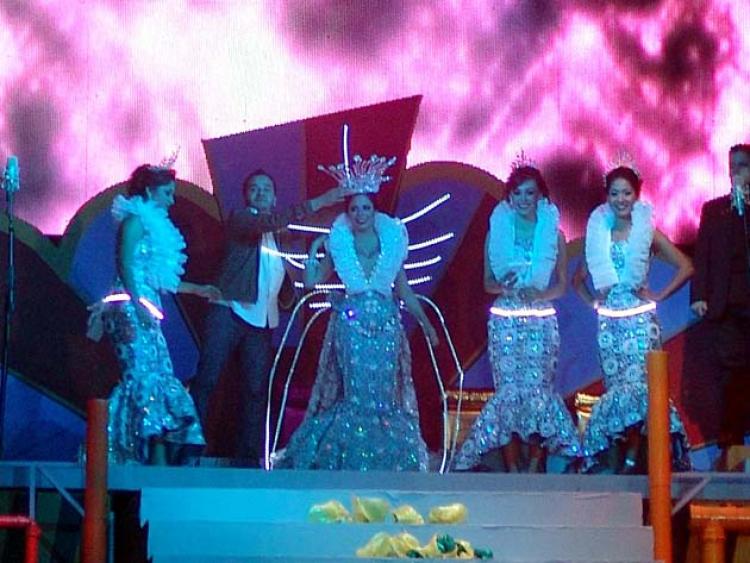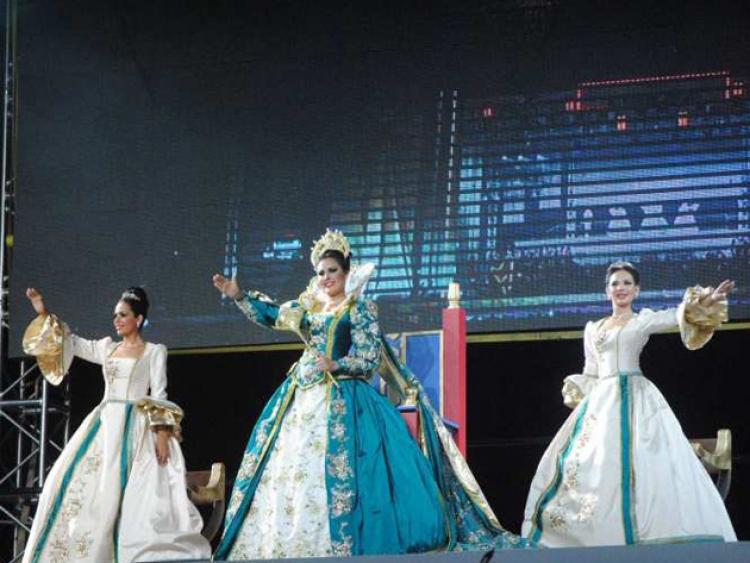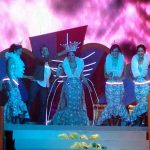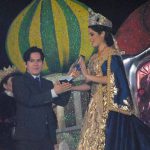 The Mazatlecos of the late nineteenth century dreamed of making the port the “Athens of the Pacific”. Those were times of abundance in commerce and industry, which produced all the material wealth in the times of Don Porfirio, which served in the promotion of the culterana activity due to its economic reciprocity.
The Mazatlecos of the late nineteenth century dreamed of making the port the “Athens of the Pacific”. Those were times of abundance in commerce and industry, which produced all the material wealth in the times of Don Porfirio, which served in the promotion of the culterana activity due to its economic reciprocity.
In this environment were born the first Floral Games that can be documented in local history. The celebration of the centenary of the foundation of the city in 1906 was the reason for his birth. However, with the outbreak of the Mexican Revolution, the dreams of progress and cultural greatness vanished to be reborn fifteen years later.
The First Regional Exhibition of the Northwest, held in 1925, was the first attempt to boost the deteriorated economy of Mazatlan. Within the framework of this exhibition, the literary society “Vesper”, on the proposal of Dr. Rafael Domínguez and Mr. Alfredo Alvarez, collaborated with the organizers of the fair, convening a poetic contest that gave rise again to the Floral Games; three years later, in 1928, for the first time a contest of this nature would be integrated into the Carnival, as a cultural prelude to widespread contempt. In 1934 a second contest was organized, but it was not until 1937 that the real consolidation of the carnival party began.

Since then it was determined that the date of its celebration would be the Friday before the burning of Bad Humor.
With the changes of the committee, the criteria and members of the jury have varied; in some stages the classical forms have predominated and in other cases poems that break with the form and theme have obtained the natural flower, whose literary contest bears the name of “Clemencia Isaura” since 1973.
In turn, the creation and insertion of the Mazatlan Prize for Literature in the Floral Games became evident in 1965 with the vigorous initiative of Antonio Haas, Francisco Álvarez Fárber and Raúl Rico Mendiola, with the aim that the port of Mazatlán would provide a recognition of the most outstanding work in the national scope for its literary quality in the course of the year.
The venues par excellence for these awards were the Rubio, Royal and Zaragoza theaters. In 1989 they would return to the Rubio theater, just before its final remodeling, which we know as Teatro Angela Peralta. For 1992 and 1993, with a great popular reaction, the maximum cultural celebration of carnival took place at the Teodoro Mariscal Stadium.
As part of the protocol, a young queen was to preside over the evening of Gay Saber. In 1928 and 1934 the Queen of Carnival had the opportunity to wrap two crowns and dress two different trousseau in the same season, but from 1937 -in order to make more competitive the election of Queen- it was established that the candidate occupy the second place would be the Queen of the Floral Games.
Between 1951 and 1960 the Queen of Carnival once again assumed the two reigns and from 1961 the crowns were once again separated, this time definitively.
QUEENS OF THE FLORAL GAMES OF MAZATLAN
- 1925-2010
- 1925‑ Margarita Cruz (Reina de los Juegos Florales de la Feria Regional de Noroeste)
- 1926- No hubo certamen
- 1927- No hubo certamen
- 1928- María Alvarado*
- 1929- No hubo certamen
- 1930- No hubo certamen
- 1931- No hubo certamen
- 1932- No hubo certamen
- 1933- No hubo certamen
- 1934- Beatriz Blancarte*
- 1935- No hubo certamen
- 1936- No hubo certamen
- 1937‑ Ana María Alatorre
- 1938‑ Dora Gudelia Aspinwall
- 1939‑ Alicia Coppel
- 1940‑ Lucila Medrano
- 1941‑ Laura Delia Haas
- 1942‑ María Luisa Espinoza de los Monteros
- 1943- Dora Gastelum
- 1944‑ Carmina de Rueda
- 1945‑ Gloria Pérez Echegaray
- 1946‑ Esther Coppel
- 1948‑ Liliana Martínez
- 1949‑ Martha Benítez
- 1950- María Elvira Patrón
- 1951‑ Rosario Barraza *
- 1952‑ Dora González Güereña *
- 1953‑ Emilia Carreón *
- 1954‑ Teresita Olga Osuna *
- 1955‑ Teresita Gómez Milán *
- 1956‑ Jannette Collard
- 1957‑ Lucila Llausás
- 1958‑ Anabella González Güereña *
- 1959‑ Martha Cecilia Tirado Almada *
- 1960‑ Lupita Rosete *
- 1961‑ Alma Valadez
- 1962‑ Hortencia Freeman
- 1963‑ Elba Alicia Tostado
- 1964‑ Loreta de Rueda
- 1965‑ María Elena Rodríguez
- 1966‑ Ruth Avilés
- 1967‑ Socorrito Cruz Corona
- 1968‑ Patricia Guevara
- 1969‑ Juany Aramburo Zataráin
- 1970‑ Cristina Reynaud
- 1971‑ Rosa María López Arregui
- 1972‑ Alma Rosa Chio Cortés
- 1973‑ Lupita Elorriaga
- 1974‑ Celia Chio Cortés
- 1975‑ July McLennan Huerta
- 1976‑ Karla Henderson
- 1977‑ Lucy Favela
- 1978‑ Lorena Xibillé
- 1979‑ Sonia del Carmen González Rodríguez
- 1980‑ Cielo Rosa Elorriaga
- 1981‑ Georgina Reyes Guerra
- 1982‑ Irma Guadalupe Ríos Portillo
- 1983‑ Celeste Margarita Ojeda Iñiguez
- 1984‑ Marisela Tirado Vizcarra
- 1985‑ Herlinda Vercellino
- 1986‑ Lupita Rosa Zatarain Castro.
- 1987‑ Laura Rojo Fárber
- 1988‑ Ana Fabiola Osuna Corona
- 1989‑ Gladys América López Ibarra
- 1990‑ Libia Zulema Farriols López
- 1991‑ Lolita Madueño
- 1992‑ Delia Alejandra Montaño
- 1993- Celia Jáuregui Ibarra
- 1994- Karina Lizette López
- 1995- Esmeralda Magaña
- 1996- Karla Arámburo
- 1997- Paloma Palacios
- 1998- Alma Angélica Loaiza Ayón
- 1999- Tania Yurasic Alvarez Mejía
- 2000- Jazmín Malcampo
- 2001- Karina Dueñas Loubet
- 2002- Fabiola Ortega Ramos
- 2003- Geovana Isaai Bernal Rodríguez
- 2004- Rosy Beltrán
- 2005- Armida Benítez Olivas
- 2006- Karina Xibille
- 2007- Nallely Navarro
- 2008- Yolanda Guadalupe Nevarez
- 2009- Corina Beltrán
- 2010- Karen Tirado
- 2011 -Vanessa Gurrola
- 2012 -Astrid Virginia Tirado Martínez
- 2013 -Lidia Rojas
- 2014 -Marcela Valdez
- 2015 -Marcela Soto
- 2016 -Blanca Herrera
- 2917 -Rossina Yañez
* Ostentaron el doble título de Reinas del Carnaval y de los Juegos Florales.



